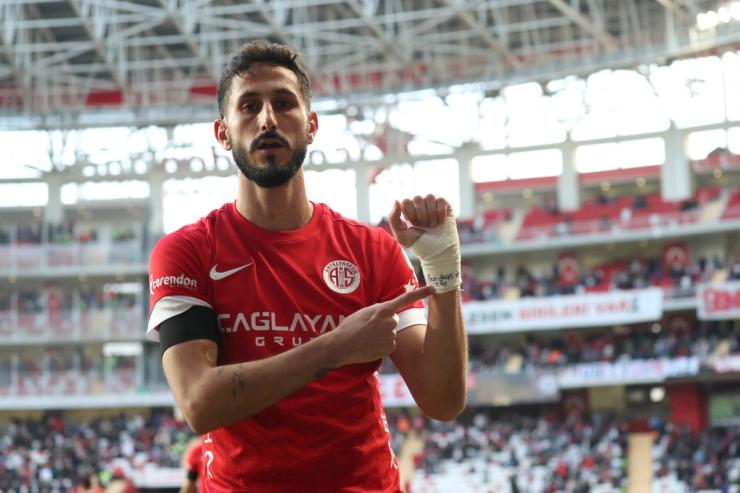The News
Tensions are flaring between Turkey and Israel after Ankara detained an Israeli soccer player Monday for honoring Israeli hostages trapped in Gaza. Sagiv Jehezkel, who plays for the Turkish club Antalyaspor, returned to Israel after being detained by Turkish police on Sunday for allegedly inciting public hatred. Antalyaspor also dismissed him from the team.
The news comes days after the International Ice Hockey Federation (IIHF) barred Israel’s ice hockey team from competing in select upcoming international competitions, citing security concerns. Cricket South Africa also demoted Jewish captain David Teeger for the U-19 World Cup, citing safety risks over potential protests after he praised Israeli soldiers.
Israeli artists and athletes are increasingly being excluded from global events amid the Israel-Hamas war, prompting some comparisons to Russia’s widespread sporting and cultural boycott after its Ukraine invasion.
SIGNALS
Israel minister blames discrimination on ‘Qatari money in athletics’
Israel’s sports and culture minister Miki Zohar suggested to Jewish Insider that the increasing discrimination against Israeli athletes may be tied to “the involvement of a lot of Qatari money in athletics.” Qatar — whose government hosts many Hamas leaders — has invested heavily into athletic teams worldwide, described by many as “sportswashing” for trying to distract from its human rights abuses.
Critics of Israel’s military campaign in Gaza are considering calling for the International Olympic Committee to consider banning Israel from the upcoming Olympics. Zohar said that international sports organizations were lacking “sympathy or empathy for Israel’s complex situation” after the Oct. 7 Hamas attacks and that Israel has to use “secret channels” to fight discrimination in sports because public protests and politicization could backfire against Israeli athletes.
Israel risks becoming ‘Russia 2.0’ with boycotts of artists and athletes
With Israeli artists, writers, and athletes being increasingly excluded from global events, the country risks becoming “isolated and outcast in the world cultural community,” prompting Haaretz columnists to question if Israel is “becoming Russia 2.0.” While Israel has long faced cultural boycotts, the situation has “deteriorated” under the Netanyahu government, the director of the Israel Festival said.
However, Israel may not face the kind of widespread global boycott that Russian artists and athletes did after the Ukraine war, because unlike Russia, governments are not “generally hostile” to Israel which is also “connected to [more] global networks of art and creative endeavor,” one Tel Aviv University researcher told Haaretz. “We are still not in the predicament of Russia, whom many clearly view as an enemy that needs to be boycotted,” he added.
Cricket South Africa failed to take ‘principled stand’ on Teeger situation
Cricket South Africa using the threat of protests as an excuse to demote Teeger from captaincy is a “convenient cover-all” by the organization, Daily Maverick’s sports editor Craig Ray wrote, and insiders told the South African outlet that Teeger was removed due to political pressure, not security concerns. CSA’s actions suggest they’re trying to appease both Palestinian supporters as well as the Jewish community, but the lack of its “principled stand” on the issue has angered “people on all sides,” Ray wrote. The Teeger controversy is set to only further deteriorate relations between South Africa and Israel, as Pretoria pursues a genocide case against Israel at the International Court of Justice, the BBC reported.


